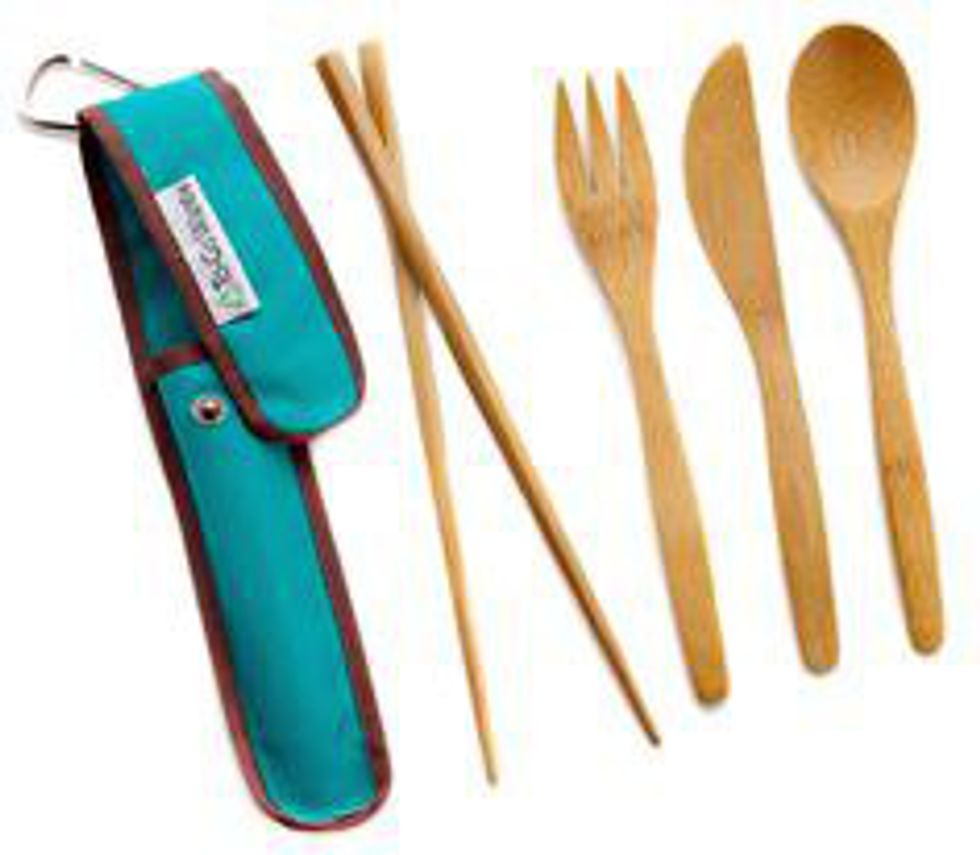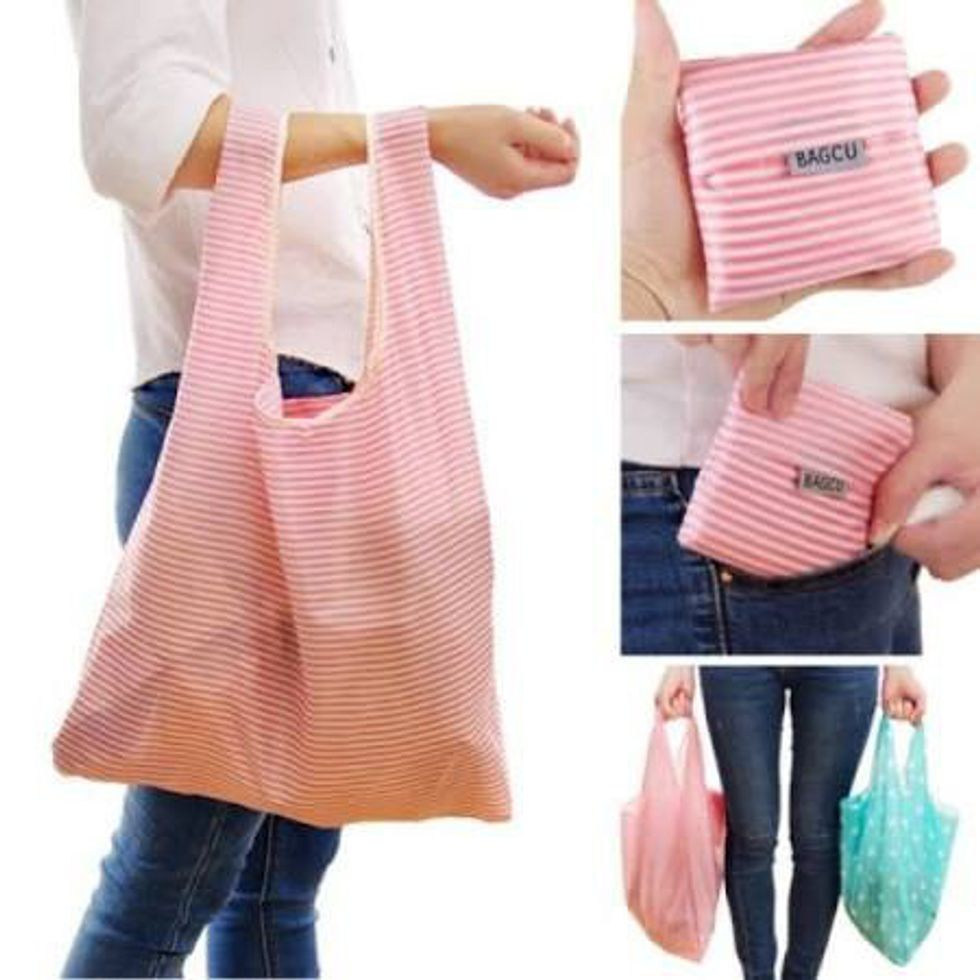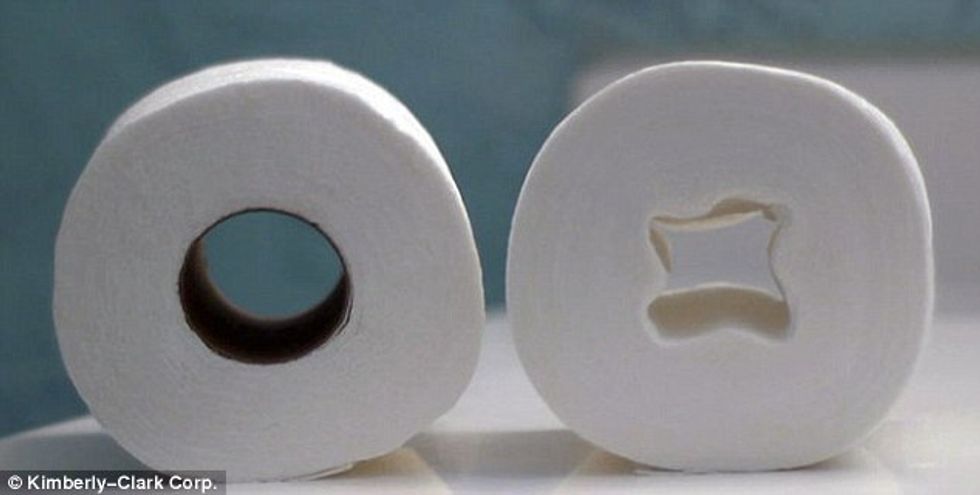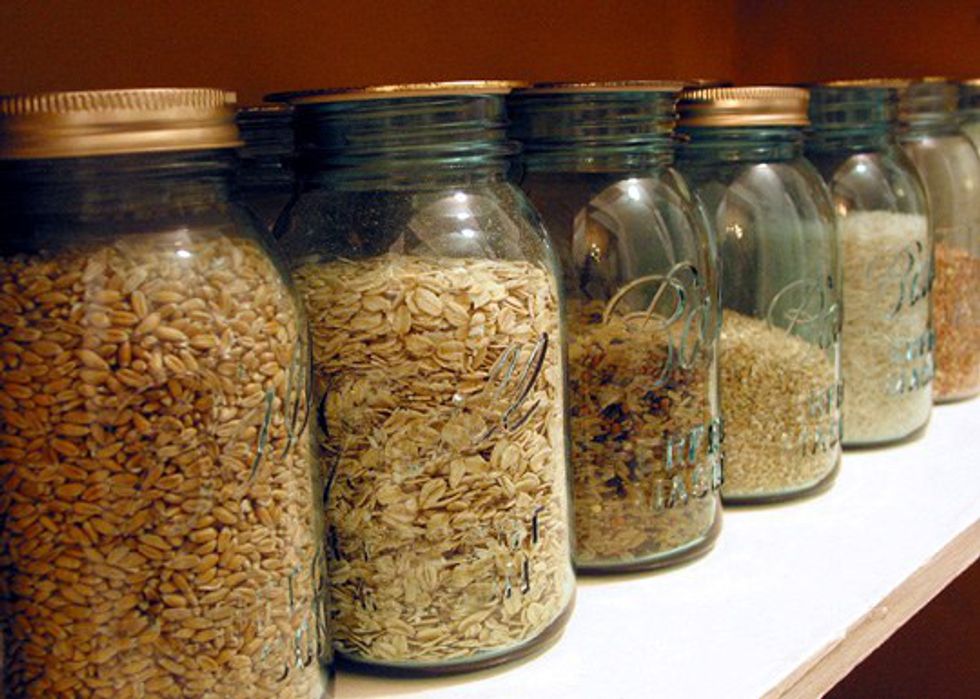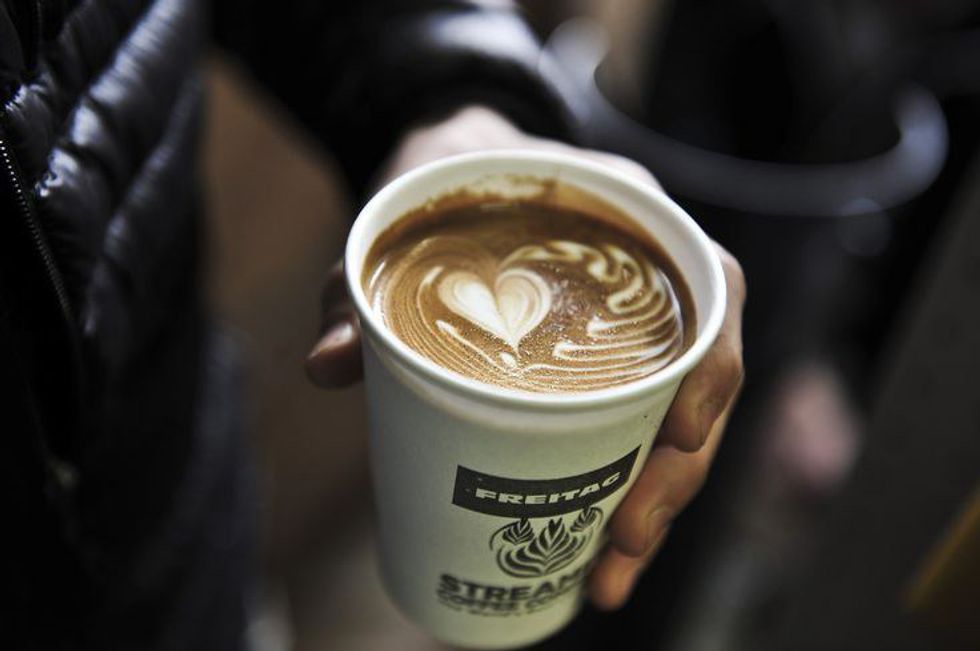Humans make a lot of trash. About 2.6 trillion pounds this year, actually.
It's a fact, and it is getting worse every day.
More than ever, we are all living on the run, we have way too many things to do, and we will much more likely choose convenience over practicality. We don't want to take the time to plan ahead in ways that will actually save us money and time. We would rather use something we can toss out rather than carry it with us or have to clean it. We will choose the easy option and never consider how those little actions, when repeated every day, really add up.
I think that many people don't try to make changes for the sake on environmental friendliness because they don't think about all those little things. They think that they would have to do huge things that are just too inconvenient for them, or that any less than a huge action just isn't enough to actually make a difference.
I'm telling you, every little action makes a difference.
Every single thing you throw away, or choose to recycle, or re-use, makes a difference. You don't have to do something huge create change; just very little things every day.
So, here are some very little, very easy things that you can do that will have a very big impact on the planet.
1. Carry your own set of utensils.
If you eat your meals in a cafeteria that doesn't offer reusable utensils, or if you eat take-out for lunch every day in your break room, that is a ton on plastic forks and spoons that will go into landfills. Most disposable cutlery is made of a plastic called polystyrene, which usually cannot even be recycled. Americans alone toss out enough of this landfill-destined plastic in the form of to-go cups and cutlery each year to circle the Earth's equator 300 times.
Instead, refuse the plastic cutlery and bring your own. You can find a set in stores around lunch boxes and tupperware. If you're feeling extra environmentally conscious, you can even get some that are made of all-natural, renewable materials. The bamboo set shown above includes a fork, spoon, knife, chopsticks, and carrying case, and can be purchased at reuseit.com for only $12.95.
2. Carry a re-usable shopping bag.
It is estimated that globally, about 1 trillion plastic bags are used and discarded each year. That's nearly 2 million per minute. Not only are they creating tons of non-biodegradable waste, but the energy that it takes to make just 12 of these bags could power a car for one mile. That is just sad.
Please. Carry your own bag.
It's understandable that sometimes you may remember on the way home that you need a few things, and maybe didn't have the forethought to bring a bag along. That's fine. But honestly, if it's only a few small things, ask yourself, "Can this fit in my backpack/purse/pockets? Do I need that extra plastic just to carry this home?" Nine out of ten times I guarantee that you will realize you don't need it.
If you are planning for a shopping trip, BRING A BAG. Bring a few. Better safe than sorry. They are much stronger that plastic bags, and most of them fold up pretty easily to fit into a small purse. Some, like the one above, even turn into their own little pocket-sized pouch. You can get the bag shown here on Wish for only a dollar. No excuses. End the reign of plastic bags.
3. Buy tube-free toilet paper.
To create less waste, some companies, like Scott, are ditching the tube. They claim that over 17 billion rolls of TP are used each year, which is enough to fill the Empire State Building twice. Just imagine that much trash sitting in a landfill. Choose a brand of toilet paper that doesn't have that cardboard tube. It's a ridiculously easy choice that you can make to reduce waste. You can even take a short quiz on Scott's site that will tell you exactly how much trash you will eliminate in your lifetime if you switch. When you have the option to make such an impact so easily, there doesn't seem to be a valid reason to choose anything else.
4. Buy in bulk.
If you have the space for it, buy stuff in bulk. Yes, it is convenient to purchase some things in travel-sized portions, but that creates so much more waste. Instead of buying individual bags of chips or baby carrots, get yourself a reusable container and take the extra ten seconds to fill it with one serving of your snack before you head out. It's extra easy to buy pantry food like beans, rice, and oatmeal this way, saving a lot of trash from single-serving packets and cans. You can do this with other household necessities as well. Instead of buying lots of individual bottles of hand soap, dish soap, all-surface cleaner, etc... Get a nice soap dispenser or spray bottle, fill it as needed from a bulk-sized bottle, and stow the rest away until you need a re-fill. If you want to carry your favorite perfume or hand lotion in your bag, buy a large bottle to keep at home, and get travel-sized bottles to fill and take on the go. Not only will this eliminate waste, but buying a lot of something at once is always cheaper by weight, and you won't have to go back to the store every time you run out of your travel-sized portions. Saving time, money, and the environment?? Triple score.
5. Refuse the lid.
If you're going to sit down to enjoy your beverage, do you really need the lid on it? It makes sense to take one if you are going to be rushing down the street, taking a car, or riding a subway. You wouldn't want to spill what you paid for. However, if you will be staying inside the cafe/restaurant/coffee shop with your drink, or taking a leisurely stroll with it, you don't need that lid. Starbucks alone goes through 4 billion disposable cups annually in all of their shops worldwide. That's just Starbucks; a chain that allows you to bring your own cup to be filled with drinks you purchase in their stores. Americans consume 146 billions cups of coffee per year in total. Imagine 146 billion lids.
If you want to take a big step, start carrying your own cup to be filled with your favorite drink. A lot of shops are beginning to follow Starbuck's example. Some places will allow any container as long as it is clean, shows the fluid ounce capacity somewhere on the container, and you ask really nicely. Just try asking. It can't hurt. Even if the barista says no, you will set an example for other patrons in the shop. If more and more people start asking about it, the shop owner's might catch on and change their mind about their policies.
Until then, take a really easy step first. Refuse the lid.
I hope this inspires you to take more steps to a more environmentally friendly life. Challenge yourself to start with one action on this list. After a week, add another. After another week, add another.
Slowly you will realize that making these choices gets easier and easier until they are second nature, and you will see that each little step makes a huge impact.
Seek out more things that you can do. Encourage your friends and family to do the same. Start making a difference.




